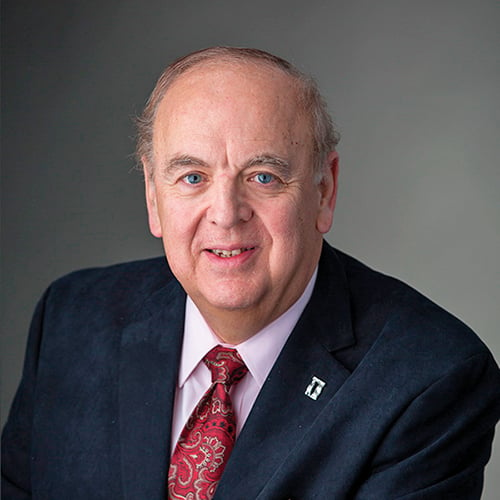
Thanksgiving until New Years represents America’s holiday season. During this five week stretch Americans perform more charity and volunteer work, and enjoy more vacation days and family time, than during any other time of year. This is also the season when Americans purchase and send holiday cards to one another. Two years ago, my classmates and I learned the transformative power of a holiday card.
During the fall of 2022, I started Touro’s new psychology PsyD graduate program. In the first semester students at Touro’s PsyD program take statistics. A topic many psychology students dread and refrain from discussing. A subject many teachers find difficult to instruct. Our program assigned Dr. Louis H. Primavera (Dr. P) to undertake this course. Although Dr. P had taught statistics for over two decades, our class represented his first in 10 years.
Over the semester our class faced ups and downs. Pop quizzes caught most of us off guard. Take- home exams entailed hours of research and writing on weeknights and weekends. Lectures went from noon-4 p.m. on Thursdays and required immense focus. The course’s extensive requirements and difficult content catapulted us from recent college graduates to graduate psychology students.
At the same time, Dr. P went above and beyond in his efforts to help us succeed. Each night Dr. P offered all students opportunities to review class material over video chat. Even on weekends Dr. P instructed students to call or email him about homework or assignment related questions. “If you get stuck, email me, call me.” After each class Dr. P stayed back to talk with students about statistics and more.
As the semester’s end approached some of my classmates wanted to get Dr. P a holiday card for his tireless efforts at teaching us. However, one classmate tried to refute the idea and claimed being our teacher was his job. “Why should we spend our own money on him for doing his job?” This point contains validity. Professors get paid to instruct students. Helping students pass is a part of teachers doing their job. Maybe Dr. P’s salary should be enough compensation for performing his duty.
On the other hand, people can perform their job half-heartedly and do the bare minimum. Dr. P could have taught our course and just offered one hour a week for office hours like other instructors. He could have provided take-home exams with shorter time periods to complete like other instructors. He didn’t have to give out his contact information and allow us to call him. Yet, he did more than what his technical role entailed. He performed a job worthy of immense gratitude.
Following a group discussion, we decided to get Dr. P a holiday card. In the colorful thank you card we placed a $10 Dunkin’ donuts gift card and wrote, “Dear Dr. Primavera, thank you for teaching us this semester. We have learned a lot about statistics and even more about life from your course. We cannot wait to take you as a teacher again.” We handed the card to our program coordinator and she gave it to Dr. P later that week.
Before our last class Dr. P offered a tear dripping announcement. “I want to let you all know that your card was really touching. I have been working in this field for many years and when people go out of their way to say thank you, it means something. I know we had a long tough semester, and I really appreciate this. I even showed it to my wife who also found it touching.” Dr. P has tenure and makes an academic salary. Yet a thank you card of gratitude offered him something more than money. It expressed appreciation for the endless hours he put in to ensure that our class succeeded.
This holiday season, go out and give a thank you card to someone at your school or job. Write a few sentences on it and place a Starbucks gift card inside. It will make another human being feel important and appreciated. A famous rabbi from Pirkei Avot named Ben Zoma once stated, “Who is an honorable person? Someone who makes others feel important.” Taking a little time to show someone you care goes a long way.
* Edited by Rabbi Neil Fleischmann.








